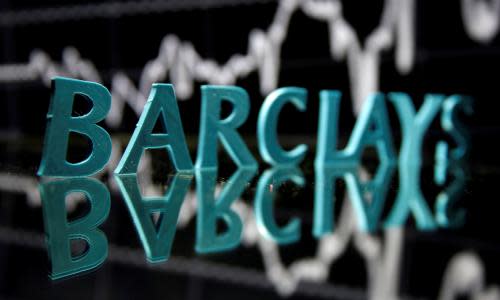Barclays cuts bonuses for investment bankers as profits slide

Barclays has cut bonuses for its investment bankers and traders as it posted lower first-quarter profits amid tough market conditions.
The bank made a pre-tax profit of £1.5bn between January and March, down from £1.7bn a year earlier but in line with City forecasts. This excludes litigation and conduct charges. If they are included, Barclays made a £1.5bn profit against a £236m loss a year earlier, when it was hit by around £2bn of conduct and litigation charges.
Barclays is under pressure from the activist investor Edward Bramson to scale back its poorly performing investment banking division and install him on the board.
At the international business, which includes the investment bank, pre-tax profit fell to £1.1bn from £1.4bn, while the UK bank posted a rise in profits to £600m from £200m, with mortgage applications up quite strongly.
Jes Staley, the Barclays chief executive, said the group had cut bankers’ bonuses to reduce costs and was “very comfortable” with its cost targets of £13.6bn to £13.9bn a year. In the first quarter, costs amounted to £3.3bn.
He said the bank took a charge of just under £400m in 2016 to allow it to better align bonuses with the firm’s revenues.
“What you see in the first quarter is Barclays using this discretion around variable compensation to manage our costs and deliver expected profitability,” he said.
Sign up to the daily Business Today email or follow Guardian Business on Twitter at @BusinessDesk
Bramson, a British lawyer based in New York, is Barclays’s third-largest shareholder with a 5.5% stake. A showdown between him and Staley is expected on 2 May at Barclays’ annual meeting, at which Bramson will call on other shareholders to support his demand to be voted on to the board.
While Bramson wants the investment bank, which he described as a “black box with too much leverage”, to be scaled back, Staley has pledged to protect it from further cuts.
Tim Throsby was ousted as head of the investment bank last month after reportedly clashing with Staley over his profitability targets, and Staley assumed closer day-to-day control of the division.

 Yahoo News
Yahoo News 